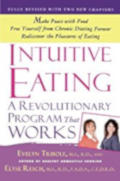Why Broccoli is Good for Weight Loss
Published: January 6, 2019
Broccoli is very low in calories, with one cup of chopped broccoli providing only about 30 calories, according to the USDA Food Composition Databases. But the low calorie count of broccoli is just one of many reasons why broccoli may be a great weight loss food. So, here are three more reasons why you should be eating broccoli if you are trying to lose weight:
1. It's a Low-Glycemic, High-Fiber Vegetable
Not all vegetables are created equal when it comes to providing weight loss benefits. A study published in the journal PLOS Medicine found that eating high-fiber, low glycemic load vegetables – like broccoli – was associated with greater weight loss, compared with eating lower fiber, higher glycemic vegetables. The positive association was particularly strong for cruciferous vegetables, a group that includes foods like broccoli and cauliflower, and green leafy vegetables.
Foods that are high in fiber are known to make people feel fuller, while foods with a low glycemic load help keep your blood sugar levels in check so you'll have fewer hunger pangs.
For this longitudinal study, the researchers examined the association between change in the intake of specific vegetables and fruits and change in body weight in three large, prospective cohorts of 133,468 American men and women. Of course, observational studies like this cannot establish any definite causal relationships, but still, the authors argue that their findings can provide "food-specific guidance for the prevention of obesity".
2. Broccoli Provides I3C Which Has Anti-Obesity Properties
Broccoli, along with a few other related foods such as collards and kale, contains a special sulfur-containing compound called glucobrassicin. Chopping or chewing broccoli releases a plant enzyme called myrosinase, which breaks down glucobrassicin into indole-3-carbinol (I3C).
I3C is perhaps best known for its anti-cancer effects, but it has also been researched for its potential anti-obesity properties, with promising results. For example, in an animal study published in the journal Nutrition, I3C resulted in weight loss and reduced fat accumulation in obese mice who were fed a high-fat diet.
Another animal study, published in The Journal of Nutritional Biochemistry, had similar findings, and concluded that I3C that may be useful in the prevention of obesity and metabolic disorders.
The researchers who conducted this study believe the anti-obesity effects of I3C may involve multiple mechanisms, including preventing undifferentiated cells from turning into fat cells, reducing inflammation, and stimulating thermogenesis, a metabolic process during which the body burns more calories to produce heat.
3. Broccoli is Packed with Vitamin C
Fresh broccoli is a good source of vitamin C, even if it does not quite qualify as a vitamin C superfood. In fact, just one cup of chopped raw broccoli provides about 80 milligrams of vitamin C, which is more than the vitamin C found in a kiwi or a small orange, according to the USDA Food Composition Databases.
Vitamin C is well known for its antioxidant properties, but some experiments suggest that vitamin C may also promote fat loss, at least in some situations.
A study led by Dr. Carol Johnston from Arizona State University found that during a 60-minute walk on a treadmill, study participants with low blood concentrations of vitamin C burned 25 percent less fat than participants who had adequate vitamin C levels.
In a subsequent double-blind, placebo-controlled trial, Johnston's research team gave eight of the vitamin C depleted participants supplemental vitamin C and noticed a significant increase in the participants' fat burning capability. This study appeared in the peer-reviewed journal Nutrition & Metabolism.
Conclusion
To sum up, broccoli has all the earmarks of a great weight loss food: it is low in calories, high in fiber, and has a low glycemic load. On top of that, broccoli provides indole-3-carbinol, a phytochemical that has been shown to promote weight loss in animals, and vitamin C, which may provide benefits for obese people who have suboptimal levels of vitamin C in their blood.
However, it is important to keep in mind that neither broccoli nor any other vegetable is a magic bullet for weight loss, and that exercise and a balanced diet are the cornerstones of a healthy weight loss regime. If you are struggling with excess weight, talk to your doctor or a registered dietitian.
Related Articles
- Is Raw Broccoli Healthier Than Cooked Broccoli?
- Organic vs Regular, Non-Organic Broccoli
- Benefits of (Organic) Broccoli Powder
- Quick Guide to Blanching and Freezing Broccoli

Written by Evelyn Tribole, MS, RD, and Elyse Resch, MS, RD, FADA, Intuitive Eating has been reshaping the eating habits of dieters since the first edition of this science-based book was published in the mid 90s. Designed to help chronic dieters to learn a completely new way of eating and develop a healthier attitude toward food, this groundbreaking guide has become hugely popular among those who have been looking for a way to break free from the yo-yo dieting cycle once and for all. In the third edition of compelling book, Tribole and Resch help you incorporate the principles of intuitive eating into your life even more fully by adding two new chapters. To learn more, see Intuitive Eating: Principles and Benefits.

